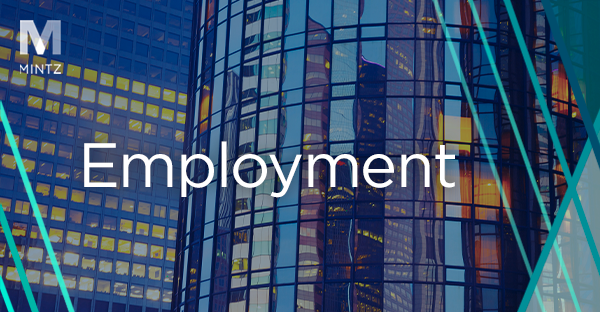Caveat Employer: An Employee’s Off-Duty Social Media Posts Can Constitute Workplace Harassment
As the workplace continues to take a new shape, the distinction between “workplace conduct” and “off duty” conduct continues to fade for many. After a recent Ninth Circuit ruling, employers must be more vigilant than ever in monitoring and responding to employee social media postings, even when they are personal and “off duty.”
In Okonowsky v. Garland, the Ninth Circuit held that an employee’s personal, off-duty social media posts gave rise to a hostile work environment claim. The plaintiff worked as a psychologist in a federal prison. Her male coworker—a corrections Lieutenant who was responsible for the safety of prison staff, including plaintiff—regularly posted overtly offensive content on a personal social media account. His account, which more than 100 prison employees followed, displayed or suggested violence against, and/or sexual contacts with, female co-workers, including plaintiff.
After plaintiff made numerous complaints and reported these posts to her supervisor and other prison officials, the prison directed her co-worker to stop posting offensive conduct in accordance with the prison’s anti-harassment policy. Despite this instruction, the Lieutenant continued to regularly post offensive material, including suggestions of sexual relations with female co-workers. The plaintiff eventually resigned and filed a lawsuit asserting a claim of sex discrimination under Title VII. But a lower court threw the case out finding that the prison was not legally responsible for the Lieutenant’s conduct when it “occurred entirely outside of the workplace.”
On appeal, the Ninth Circuit reversed, holding that regardless of where the Lieutenant was when he posted the offensive content, his colleagues viewed the content, and it had the effect of creating a hostile work environment. The Ninth Circuit highlighted that the important question was not whether the Lieutenant posted from the physical workplace, but whether his conduct had an unreasonable effect on plaintiff’s work environment. Under that standard, the Ninth Circuit concluded that “offsite and third-party conduct can have the effect of altering the working environment in an objectively severe or pervasive manner” because “even if discriminatory or intimidating conduct occurs wholly offsite, it remains relevant to the extent it affects the employee’s working environment.”
The Ninth Circuit’s holding is consistent with the EEOC’s recently issued Enforcement Guidance on Harassment in the Workplace, which we previously wrote about here. There, the EEOC states that conduct can affect the terms and conditions of an employee’s employment “even if it does not occur in a work-related context.”
Takeaways for Employers
- The lines between the workplace and “outside the workplace” continue to blur. Employers should be prepared to respond to their employees’ offensive online content irrespective of when and where it was posted.
- Employers should develop or revise policies providing for swift and thorough investigations into employee claims of misconduct, including claims involving social media posts.
- Employers should consider revising any relevant training materials for supervisory employees relating to “offsite” or “off duty” conduct and harassment.
- Employers should also consider revising any relevant policies on harassment to include provisions relating to out of work conduct and social media usage, to ensure employees are on notice that their social media postings may impact their employment.
- Employers should work with counsel to ensure they are mindful of statutory protections of lawful and political off-duty employee conduct, which some coworkers may subjectively perceive as offensive. More on that here.

Update: EEOC Issues Final Guidance on Workplace Harassment
May 29, 2024| Blog|



